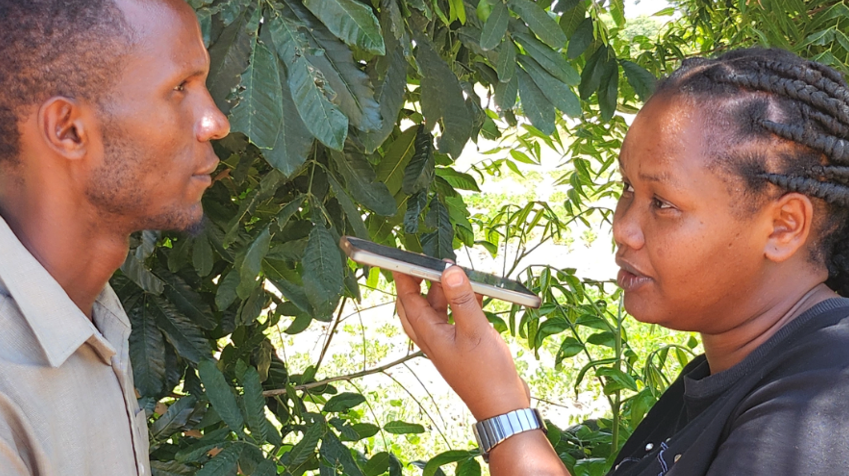With women’s empowerment an increasingly active area for study, the stockpile of gender-disaggregated survey data has dramatically expanded. Based on these data, a growing body of literature has found that men and women often disagree when asked the same questions. But what do these disagreements actually tell us about gender and household behavior? Our recent paper (forthcoming in Economic Development Cultural Change) addresses this question with data from Bangladesh, arguing that disagreement indicates asymmetric information between spouses in the form of hidden assets or decisions. In other words, wives may own assets or make decisions that their husbands are unaware of.
Using husband/wife pairs interviewed for the first round of the Bangladesh Integrated Household Survey, we evaluated two questions that are often used as proxies of bargaining power: Who in the household owns assets and who makes decisions. We considered the full range of assets and decisions included as part of IFPRI’s Women’s Empowerment in Agriculture Index (WEAI).
Though the survey allowed for a range of responses to these questions, we focused on whether the wife was reported to have a role (either alone or jointly with another person) in owning the asset or making the decision. This simplification reduced noise in the responses, and allowed us to focus on the role of the wife. We analyzed four categories of responses: The couple agrees that the wife does not have a role, the couple agrees that the wife has a role, the wife reports that she has a role and the husband does not, and the husband reports that the wife has a role and the wife does not.
What accounts for the disagreements? Because existing household models do not generally allow for perceptions of bargaining power to differ within households, we developed a simple model that considers three explanations.
The first is random measurement error, such as errors committed by enumerators. These would be equally distributed across types of disagreement, and would not tell us much about household behavior. Second, we considered asymmetric measurement error, which can result in systematic differences in responses if, for example, men and women understand questions differently. In this case responses may vary by gender, but differences should be equal across categories of assets and decisions. Finally, we examined asymmetric information, which could generate disagreement if women own assets or make decisions that their husbands are unaware of, either intentionally or unintentionally (or vice-versa, though we did not examine this scenario because men’s roles are almost always recognized by both spouses in this data). Because we expect information asymmetries to vary across types of assets and decisions, differing levels of disagreement across categories would be indicative of asymmetric information within the household.
Our results showed that disagreement is both economically meaningful and systematic. Women were much more likely to report that they own assets or make decisions than men were to recognize these roles. We also found that disagreement varied across categories of assets and types of decisions.
Based on these findings, neither random nor systematic measurement error can explain all (or most) of the disagreement we observed. Disagreement was also highest regarding assets that can be most easily hidden, further suggesting that asymmetric information is—at least partly—driving these patterns. This analysis not only provides evidence of the existence of asymmetric information in households, it also tells us that these survey measures provide important information both about bargaining power and asymmetric information.
This paper contributes novel findings to an active area of research. Annan et al. showed a similar pattern of wife-favored disagreement when considering one decision-making question from the Demographic and Health Surveys across 23 countries in Africa south of the Sahara. They related disagreement over the wife’s role with her either “taking power” (when women reported greater decision-making ability for themselves than husbands reported about them) or being “given power” (men reported greater decision-making for wives than women did for themselves). The authors found that taking power was associated with improved outcomes for women.
While these results are consistent with ours, with only one question the authors were unable to test for the presence of asymmetric information. Meanwhile, in a companion paper, we discovered similar patterns in Nepal, where we considered the role of both women and other household members in a context where couples often live with extended families. Our analyses showed systematic disagreement regarding not only the role of women, but also the roles of others, suggesting that asymmetric information can extend beyond the couple in more complex households. This growing literature is strong evidence that looking beyond gender-disaggregated data to analyze the extent to which men and women agree or disagree can provide rich insights into household behavior.
Kate Ambler is a Research Fellow with IFPRI’s Markets, Trade, and Institutions Division (MTID). Cheryl Doss is Senior Lecturer and Associate Professor in the Department of International Development at Oxford University. Caitlin Kieran is a PhD candidate in the Department of Agricultural and Resource Economics of the University of California, Davis. Simone Passarelli is a postdoctoral fellow in the Nutrition Department at the Harvard T.H. Chan School of Public Health.
Funding for this project was provided by the IFPRI-led CGIAR Research Program on Policies, Institutions, and Markets (PIM).







